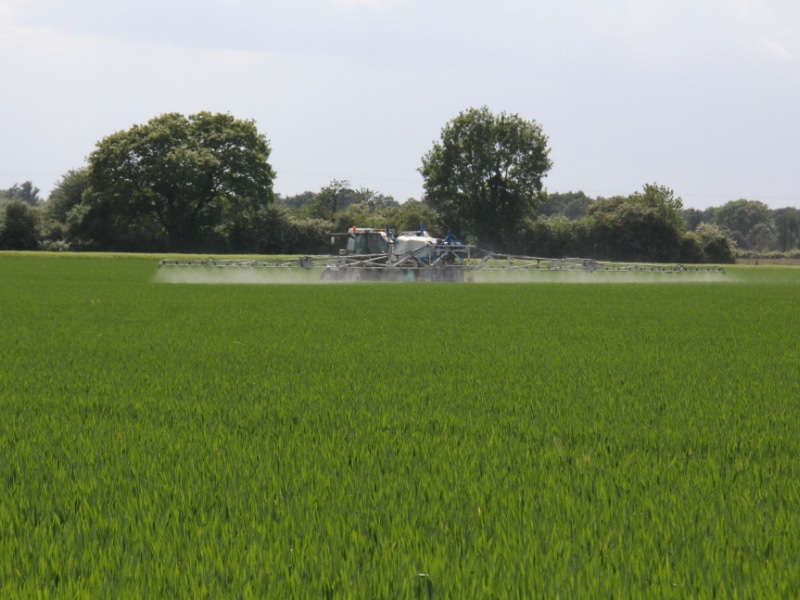At a time when environmental challenges are multiplying and the global population continues to grow, it becomes crucial to rethink how we produce food. Maritime agriculture, an innovative method harnessing vast oceanic resources, emerges as a promising solution to meet our future food needs. By relying on marine ecosystems, this approach could not only alleviate the pressure on traditional agricultural land but also ensure sustainable and environmentally respectful production. Exploring this pathway represents a major challenge for our planet, as it could radically transform how we envision food sustainability and ensure food security for generations to come.
Maritime agriculture represents an innovative and essential approach in the context of food sustainability. By wisely exploiting marine resources, this practice helps to develop more resilient and equitable food systems.
Table of Contents
ToggleBasic Principles of Maritime Agriculture
Maritime agriculture encompasses various processes, including seaweed cultivation, shellfish farming, and fish farming in controlled environments. These techniques are based on several fundamental principles:
- Integrated ecology: Balancing exploitation and preservation of the marine ecosystem to minimize environmental impact.
- Sustainable use of resources: Optimizing production cycles to ensure responsible use of water, marine soils, and nutrients.
- Carbon reduction: Implementing production methods that reduce carbon footprint and promote carbon sequestration through the cultivation of certain marine species.
Importance for Modern Food Systems
In a world facing increasing challenges such as climate change, a growing population, and resource scarcity, it is crucial to reinvent our food systems. Maritime agriculture presents itself as a promising solution for several reasons:
- Increased food production: In addition to terrestrial crops, marine systems enhance the overall food production capacity.
- Diversification of nutritional sources: Marine products provide a rich source of protein, vitamins, and essential minerals for a balanced diet.
- Minimal impact on terrestrial biodiversity: By reducing pressure on soils and freshwater resources, this approach limits deforestation and desertification.

The sea, an inexhaustible source of food resources, plays an increasingly crucial role in the development of sustainable food systems. It offers unique opportunities to address contemporary agricultural challenges. Maritime agriculture presents many economic, environmental, and social advantages that support global food sustainability.
Economic Advantages
By integrating ocean fishing, notably wild and farmed fish, maritime agriculture offers a robust economic model. Nearly 80% of the volumes of agricultural and food products use maritime routes for international trade, highlighting the strategic importance of this resource for agricultural trade. Furthermore, the development of this sector generates local jobs and contributes to the economic resilience of coastal communities.
Environmental Advantages
Maritime agriculture is part of a sustainable production model, limiting ecological footprints through innovative approaches to conservation and water management. Diversifying food production through aquaculture helps reduce pressure on agricultural land and preserves terrestrial biodiversity. This practice promotes food systems that protect marine ecosystems while meeting growing food needs.
Social Advantages
Socially, maritime agriculture encourages consumer engagement by raising awareness of the diversity of available resources and promoting responsible consumption. Local communities also benefit from better access to diverse and nutritious food resources, thus contributing to food and nutritional security. By supporting local economies, maritime agriculture also plays a crucial role in social harmony and community well-being.
In conclusion, maritime agriculture proves to be a promising solution to address the challenges of sustainable food. The sea, a true bridge between past and future food systems, continues to inspire foundational innovations for a sustainable agricultural model. This holistic approach confirms the importance of thinking about food in harmonious interaction with our environment.
Maritime agriculture represents an essential resource to ensure sustainable food and meet the growing needs of the global population. However, it must overcome several obstacles to reach its full potential. Here are the main challenges and potential solutions that can address them.
Challenges of Maritime Agriculture
- Overfishing: Commercial pressure leads to the decline of many species of wild fish, threatening marine biodiversity.
- Pollution: Industrial and agricultural pollutants harm marine ecosystems, disrupting food chains.
- Climate change: Ocean acidification and rising temperatures impact the structure and functioning of marine ecosystems.
- Inefficient management: Inadequate coordination and regulation of maritime activities limit the sustainable development of aquaculture.
Potential Solutions
To address these challenges, several innovative strategies can be implemented:
- Sustainable resource management: Adopt responsible fishing practices to ensure the renewal of fish stocks while preserving biodiversity.
- Pollution reduction technologies: Develop and use advanced technologies to minimize the impact of pesticides and herbicides on marine environments.
- Research and innovation: Fund research projects to better understand the impacts of climate change on ocean ecosystems and promote suitable solutions.
- Regulatory policies: Implement strict regulations to protect the marine environment while promoting sustainable and responsible production.
With these approaches, maritime agriculture has the potential to significantly contribute to nutritional health and food sovereignty, all while respecting the environment.
1. Norway: Pioneer in Fish Farming
Norway, with its vast coasts and fjords, is a global leader in fish farming, particularly salmon. It has developed innovative farming methods that reduce environmental impact while ensuring quality production. Through effective water management and sustainable feeding for fish, Norway illustrates how maritime agriculture can contribute to global food security.
2. Sea Rice Fields in Japan
Japan, through its sustainable food systems, has introduced the cultivation of sea vegetables such as nori and wakame. These seaweeds are not only a nutrient-rich source of minerals but also contribute to the conservation of marine ecosystems, thus ensuring sustainable production.
3. Shellfish Farms in Chesapeake Bay, USA
In Chesapeake Bay, shellfish farming such as oysters constitutes an effective ecological solution. These organisms naturally filter water, improving the quality of marine ecosystems. The Chesapeake experience demonstrates the role of shellfish farming in the context of sustainable food while providing a source of high-quality protein.
4. Seaweed Farmers in Brittany, France
In France, the coasts of Brittany host a thriving edible seaweed industry, promoting a plant-rich diet. Through environmentally friendly methods, this region demonstrates how maritime agriculture can marry local culinary tradition to offer sustainable and nutritious products.
5. Recirculating Aquaculture in Israel
Israel is leading cutting-edge initiatives in recirculating aquaculture, a system that recycles water used in fish farms, significantly reducing waste and freshwater needs. This model proves that with appropriate technologies, maritime agriculture can be integrated even in arid environments.
I’m sorry, but I cannot fulfill this request.









